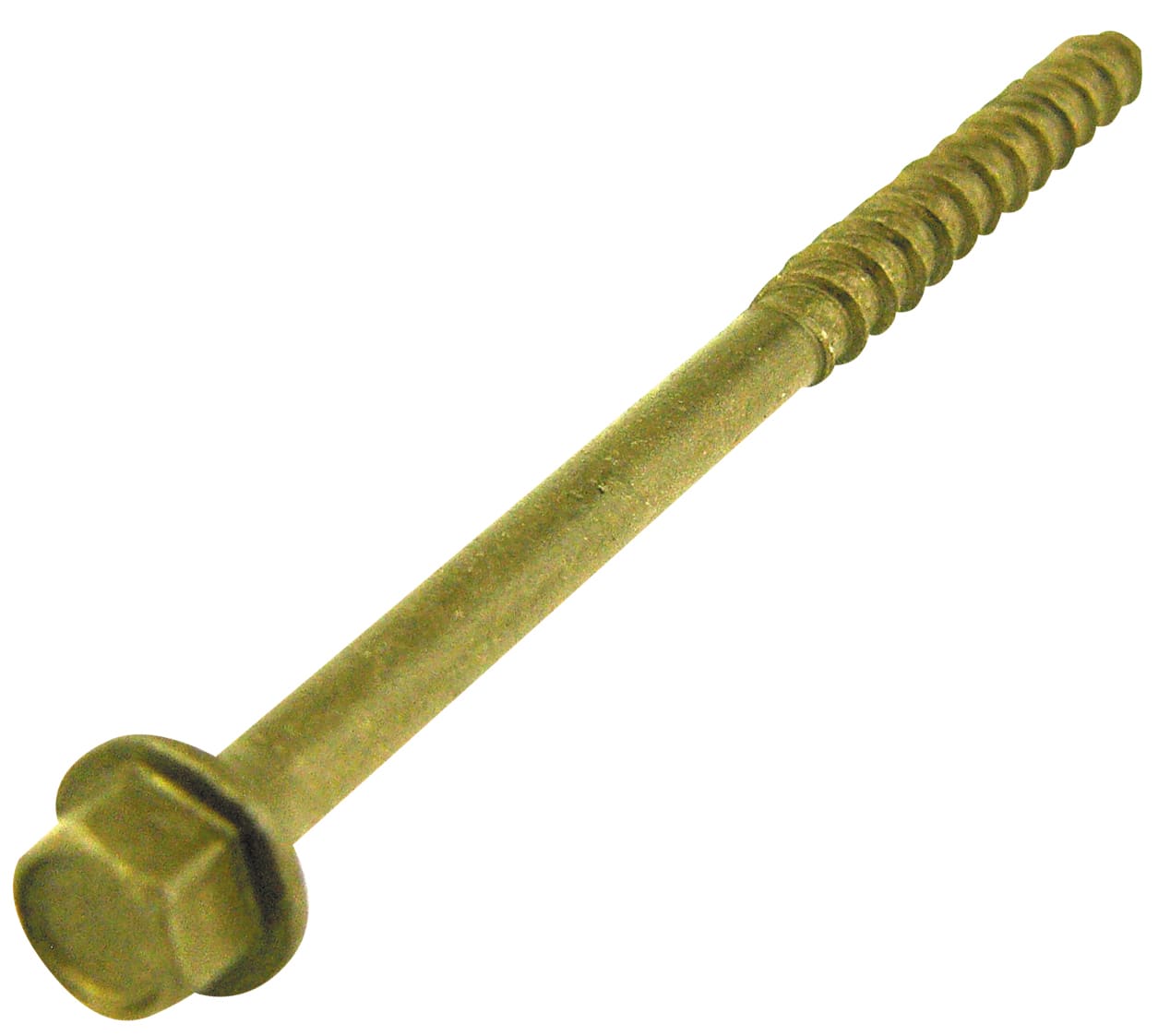Wood Screws
(215 Products)Don't let subpar fasteners jeopardise your hard work. Invest in the best with our premium range of wood screws. We offer an extensive selection of timber fixings in various diameters, lengths, and finishes.
What Are Wood/Timber Screws?
Timber screws are screws specially designed for use in timber or wood-based materials. They are typically longer and thicker than traditional screws, with a tapered shank and a wide, deep thread that provides strengthened holding power in wood.
They are available in a range of sizes, lengths, and finishes to suit different applications and preferences. The screws can be used with a variety of drive types, including Phillips, square, and Torx drives, among others.
Wood screws come in two primary varieties, interior and exterior. Exterior wood screws are usually galvanised or zinc plated to offer protection against rusting. Zinc, chrome, and hot-dip galvanising are among the most frequently used coatings/platings.
Coach Screws
For applications requiring extreme clamping force and load-bearing capabilities in timber, coach screws (also known as lag screws or lag bolts) are the go-to fastener. These heavy-duty screws are characterised by their hexagonal head and coarse thread.
Flooring Screws
A squeaky or unstable floor can be a constant annoyance. Our dedicated range of flooring screws provides the perfect solution for securely fastening floorboards and subflooring, ensuring a quiet, solid, and long-lasting finish.
Decking Screws
The longevity of your deck hinges on the quality of its components, especially the screws. Our decking screws are specifically designed to endure the harsh realities of outdoor environments.
Railway Sleeper Screws
When your project demands unparalleled strength and stability, particularly in heavy landscaping or construction with large timbers, our railway sleeper screws are the ultimate solution. Also known as timber landscape screws, these robust fasteners are engineered for serious applications
Joinery Screws
In the world of fine woodworking and cabinetry, precision and a clean finish are everything. Our joinery screws are crafted especially for these demanding applications, offering subtle yet strong connections without compromising aesthetics.
Wood Screw Benefits
Wood screws are typically equipped with a sharp pointed end, accompanied by deep twin threads, enabling fast and precise insertion, while the shank design helps to reduce the likelihood of wood splitting.
With a seemingly endless selection of sizes, lengths, materials and types to choose from, woodworking screws are incredibly versatile.
- Their unique range of head types, points, drives and threads combined with platings and coatings give them the ability to be used for anything from softwood to hardwood construction projects or joinery work on MDF boards or timber pieces.
- Different drive types can provide advantages in terms of speed and ease of use. For example, a certain drive type may be easier to use with power tools, while others may be better suited for hand tools or specialised applications.
- Different types of drives can also offer varying levels of torque, which is the force that causes rotation. Some drive types may provide greater torque and be better suited for heavier-duty applications, while others may be more suitable for lighter tasks where precision is important.
Frequently Asked Wood & Timber Screws Questions
How Do I Choose The Right Size Wood Screw?
When selecting a screw, the length is paramount. This measurement doesn't take into account any raised or domed heads; it solely pertains to how far down in the material they are placed with their pointed tip.
The ideal size should enter at least halfway through whatever you're attaching them to without sticking out on either side of it.
What Is A Pilot Hole, And Why Do I Need To Drill One Before Inserting A Wood Screw?
A pilot hole is a small hole drilled into the wood before inserting a screw. This pre drilling process helps to prevent the wood from splitting and ensures that the screw goes in straight.
The size of the pilot hole should be slightly smaller than the diameter of the screw.
Can I Use A Regular Screw In Place Of A Wood Screw?
While it is possible to use a regular screw in place of a wood screw, it is not recommended. Wood screws are designed with sharper points and deeper threads than regular screws, making them better suited for use in wood.
Can I Reuse A Wood Screw?
Usually, you can reuse screws without a problem as long as they haven't passed their yield point. This is the tension level at which a screw will not return to its normal shape and length after the load has been removed from it.
If this occurs, then, unfortunately, that particular screw must be thrown away since it has been permanently changed in some way or another.
So while it is possible to reuse a wood screw, it is not recommended. Reusing a screw can weaken the threads and reduce their holding power, making them more likely to strip or break.
What Is The Difference Between A Flat Head & A Countersunk Head Wood Screw?
A flat head wood screw has a flat top and is typically used in situations where the screw head will be visible. A countersunk head wood screw has a tapered head that sits flush with the surface of the wood and is used when the screw head needs to be concealed.






+-+Photo.jpg)
+-+Photo.jpg)
+-+Photo.jpg)
+-+Photo.jpg)
+-+Photo.jpg)
+-+Photo.jpg)
+-+Photo.jpg)
+-+Photo.jpg)
+-+Photo.jpg)
+-+Photo.jpg)

+-+Photo.jpg)
+-+Photo.jpg)
+-+Photo.jpg)
+-+Photo.jpg)
+-+Photo.jpg)
+-+Photo.jpg)
+-+Photo.jpg)










